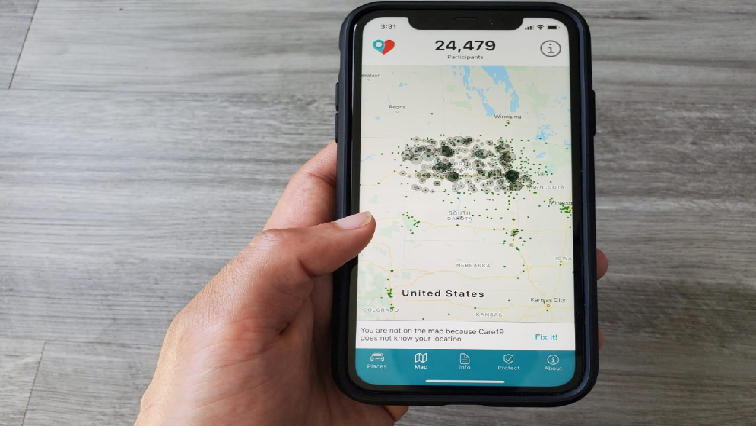The global war against COVID-19 is central to all developments, as a third of the world remains on lockdown in attempts to conquer it. A few industries stand to benefit by regarding this crisis as opportunity. One of these is the technology space. In this series titled, COVID Tech, SABC News’ Tshepiso Moche reports on coronavirus-related tech developments in South Africa and globally. In the first edition, he looks at an app developed to help government trace those infected by COVID-19.
A group of researchers from the University of Cape Town is hard at work developing a smartphone app to help government track people who may be unaware they have contracted COVID-19, as well as those who have come into contact with people who have tested positive. Named CoviID, the application uses location to do the tracking.
Plans to implement contact tracing were announced by Communications Minister Stella Ndabeni–Abrahams.
Contact tracing is a significant part of the battle to conquer the coronavirus pandemic. Efforts are also being made internationally by the likes of Apple and Google, who recently announced a Bluetooth-based COVID-19 contact tracing platform.
How will it work?
The South African government is currently struggling to track and trace people who are believed to have come into contact with those who tested positive.
The CoviID app will collect users’ personal locations and their infection statuses, and store the data on individual’s phones using a technology called self-sovereign identity – not on a centralised government or private-sector database.
This provides the user with full authority and control over who gets access to the data, for what purposes and for how long.
The app uses Bluetooth and geolocation to track and trace the movements of individuals, over the two week period prior to them testing positive for the virus.
The data will help the Department of Health to know where to start looking for people who came into contact with a person who has tested positive.
Concerns over privacy
There are, however, concerns that mobile tracking may lead to privacy violations.
Mainly that if such sensitive information lands in the wrong hands, people’s private information could be compromised.
The issue of stigma towards people who test positive, is another key consideration.
There have been a few instances in which people have been victimised.
Most recently, community members in Kranskop in the KwaZulu-Natal midlands launched a protest, calling for the removal of patients who had tested positive for COVID-19 from the Ntunjambili Hospital.
The facility had been identified as a quarantine facility for infected patients.
In the video below, SABC’s Ayanda Mhlongo reports on community members’s concerns:
Internationally, Apple and Google have announced plans to turn phones into opt-in COVID-19 tracking devices, using a smartphone’s Bluetooth capabilities.
They claim they will keep people’s identities and locations anonymous.
Relatively safe?
While experts, the likes of UCT Associate Professor Co-Pierre Georg, emphasize the importance of such technologies based on their potential to deal with future outbreaks, they are urging for caution by developers to ensure that there are no loopholes in terms of security measures.
Georg, however, does seem to believe that the CoviID app is relatively safe.
“This app can be used for example by taxi operators, security guards or anyone tasked with ensuring public safety. The app can read the QR code and show the verifier and show the health status of the user in a form of either a green, red or yellow signal. So, no personal information will be revealed except the current status of the user,” explains Georg.
Wesley Diphoko, Editor-In-Chief at the Fast Company (SA) magazine, says although the use of technology is important in helping reduce the number of infections, there are several challenges.
Diphoko says tracing can be enhanced by people’s WIFI location, cell phone tower signals and GPS.
But he has emphasised that people’s privacy shouldn’t be compromised at all levels.
He says for this kind of technology to work, people should carry their smartphones all the time.
And although there have been doubts about the accuracy of the data that such apps disseminate, Diphoko believes that the information can be trusted.
“The information can be trusted … if the user uses the app all the time. In other words, smartphone users will have to carry their mobile devices all the time so that the movements can be detected and recorded as opposed to leaving the phone at home,” explains Diphoko.
Click on the below audio clip to listen for more from Diphoko:
On Tuesday, the Department of Health announced an increase of COVID-19 cases from 4 793 reported on Monday to 4 996.
Minister Zweli Mkhize says the number of deaths has also increased by three to 93.


